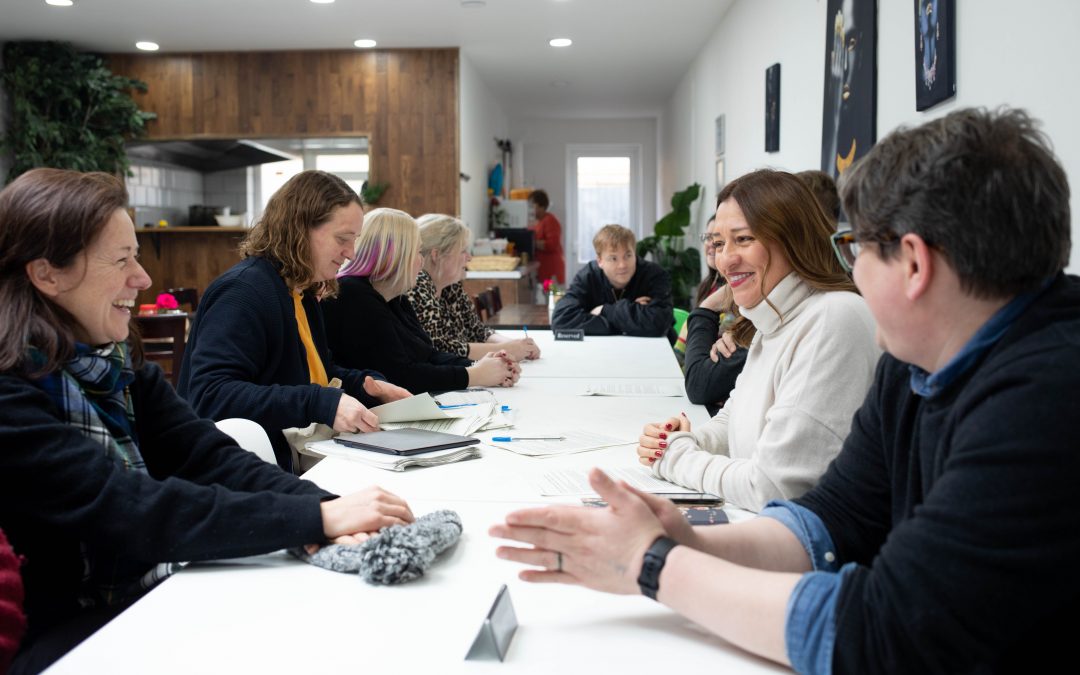In March, members of the Redhills team went on an inspiring visit to Tottenham in London to meet various community organisations as part of the Redhills and Tottenham Learning Exchange project. The project has been funded by University College London Public Policy, UCL’s institutional initiative to support engagement between academic researchers and public policy professionals.
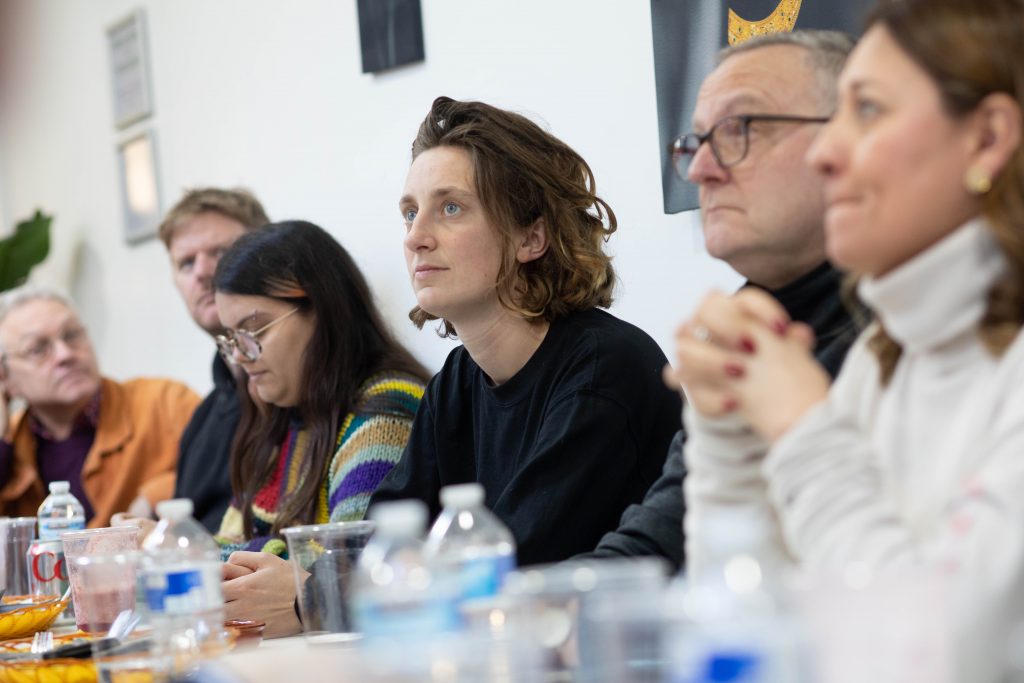
What is the learning exchange project with Tottenham?
The project conducts a learning exchange programme through a partnership between Redhills and the West Green Road/Seven Sisters Development Trust based in Tottenham, London. Both Redhills and West Green Road/Seven Sisters Development Trust are restoring and re-purposing historic buildings, advancing specific visions and proposals for socially-just and sustainable local economic development.
The exchange visit enabled key partners from Sacriston, including representatives from Woodshed Workshop, Recycled CIC, Nettlesworth Community Centre and Sacriston Youth and Community Project, to be brought together with peers based in the South of the country to explore similarities and ways to develop and grow. A visit to Durham for the London partners will be scheduled for later in 2023.
Who are West Green Road/Seven Sisters Development Trust?
West Green Road/Seven Sisters Development Trust was set up to create a community plan to bring the existing Wards Corner historic building back to life for the next generation, with the Seven Sisters market, popularly known as the Latin Village, at its heart.
What was the itinerary for a visit to Tottenham?
The first stop on the visit was at Blanca’s restaurant, a previous Latin Village market trader who had temporarily set up a business on West Green Road.
It was here the group was welcomed with a lovely meal and met several project partners, including the Wards Corner Community Benefit Society (CBS, the organisation that will manage and restore the Wards Corner buildings, and deliver the Wards Corner Community Plan, Save Latin Village (ADD), Unit 38 (an architectural design collective, who are working on Wards Corner), Markfield Project (a unique community centre for those with disabilities based in a refurbished Victorian pump house in Tottenham) Living Under One Sun (a community hub, delivering free frontline community-led projects, services, events and festivals, creating places to share stories, ideas and skills for people to become “can do” communities, the Selby Centre (a community hub which brings together a rich mix of individuals and organisations, primarily from BME, refugee and other historically excluded communities and has recently just been awarded £20m from the Levelling Up Fund to create ‘Selby Urban Village’) and Wolves Lane Centre (a space for sustainable growing, education, social enterprise and community engagement).
After lunch, the group visited the Wards Corner building. Currently covered in white plastic sheeting due to internal works, the group heard emotional stories about how long it has taken to get to this point and had some inspiring conversations about what’s next.
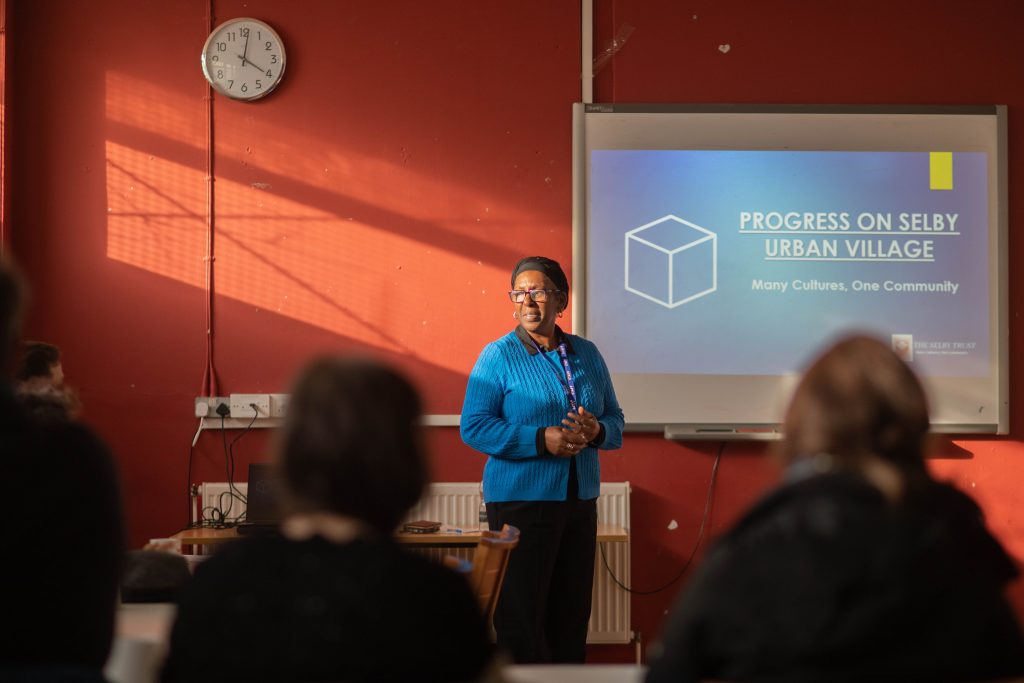
The group then took a visit to the Selby Centre and a presentation from Claudette and Jack about the next steps in their successful Levelling Up Fund project, the Selby Urban Village, followed by a tour around their current premises and hearing all about their exciting development plans.
From Selby Centre, the group’s next and final stop for the day was Wolves Lane, where the group had a tour of the community hub and heard about all the different projects that take place there, which shape it as a thriving space for sustainable growing, education, social enterprise and community engagement.
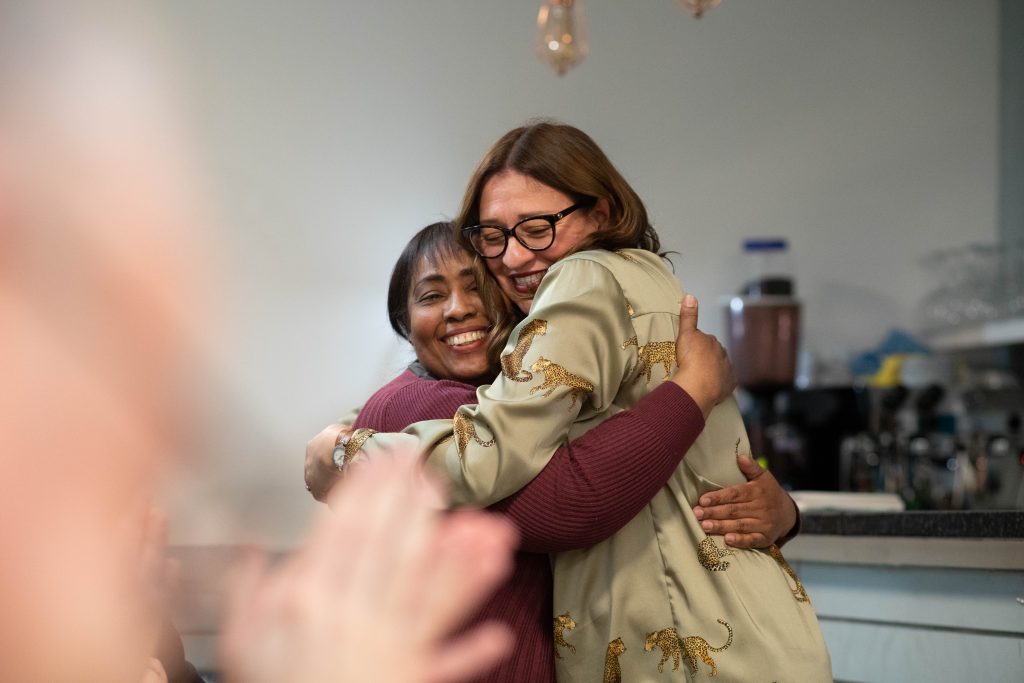
On Saturday morning, the group headed to Living Under One Sun, a community centre located in a disused bowling club and green. The group were greeted with music and welcomed with open arms by Leyla, who runs the centre. Here, two workshops took place with participants from both Durham and Tottenham. They explored a range of topics about community development. It became clear that the two groups face similar problems in radically different contexts, challenging the idea that the problems are common and the solutions are universal. The Durham group took energy from what they saw in Tottenham – as well as being validated and inspired and gaining clarity and perspective.
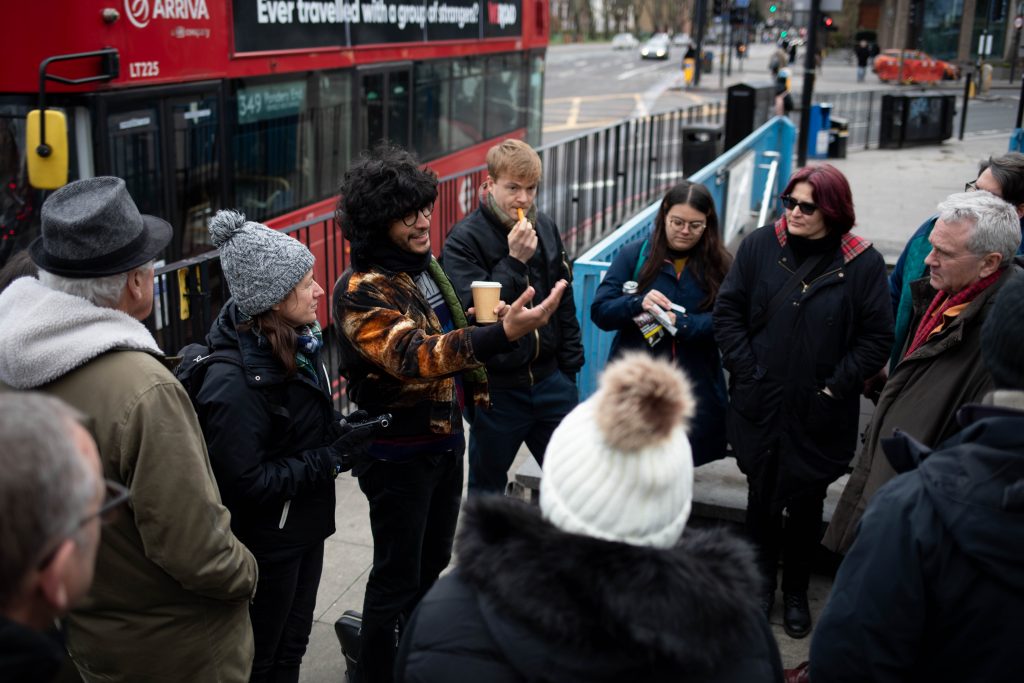
There were positive outcomes through the discussions, particularly around building cooperation and, exchange, strength through that networking rather than economies of scale. It is important to make time to come together, learn from one another.
The next steps in the project are for the Tottenham group to visit Durham. A report will be produced by the UCL team for a policy audience, as well as a more detailed write-up of the Tottenham visit, to feed into the return visit to Durham and the final project report. With thanks to Alex Sturrock for images.

